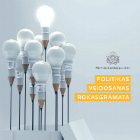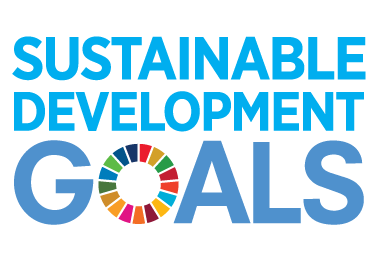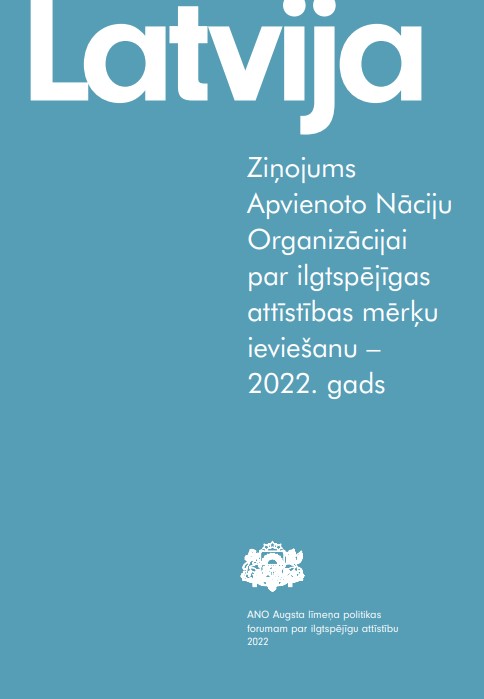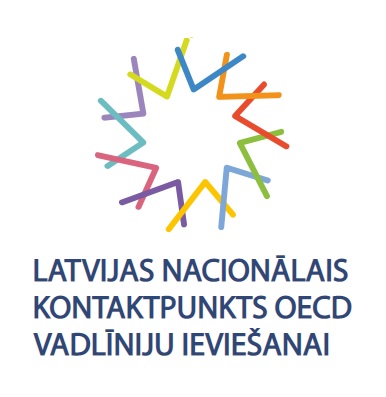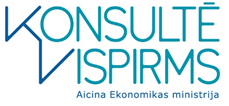The expert collaboration platform “Centre for Demographic Affairs” was established in spring 2016 upon initiative of the Prime Minister of Latvia Mr Māris Kučinskis to facilitate and guide the execution of task taken by the Government’s Declaration – to improve the demographic situation in the country, facilitate the family life quality and social support.
The expert collaboration platform is led by Chairman of the Demographic Affairs Subcommittee of the Parliament Budget and finance (taxation) Committee, MP Mr Imants Parādnieks.
Experts from Ministry of Welfare, Health, Finance and Cross-Sectoral Coordination center are represented at the Platform.
Within the time of approximately of half a year, the Platform has managed to develop series of specific proposals for increased support to families with children, especially large families – with three and more children, as well as formulated an official support for improvement of non-family care for orphaned children or children without parental care to be placed into foster care in families.
Activities for facilitation of demographic situation included in the state budget 2017 by the Government upon the initiative from the Centre of Demographic Affairs
1. Continuation and development of the “housing” programme - 4.42 MEUR, affects more than 3000 families with children each year;
a. The Housing support programme was commenced in 2015, and up to day it has assisted more than 4000 families in purchasing housing, by issuing state guaranties to credit institutions to extent of 10, 15 or 20 thousand euros depending on the number of children in the family, the guaranty can cover maximum 20% of purchase value. In 2017 estimated number of 3600 families can apply for this support.
2. Support for adoption and improvement of non-family care system - 4.9 MEUR – affects almost 4000 persons
a. The support for foster parents who care for orphaned children of children deprived of their biological parent care is increased by 109% or 150% depending on the age of the child (under than 7 years of age or older correspondingly). Such significant increase is required due to fact that this benefit was not indexed for 21 year, and current sum (€45) is absolutely insufficient to have foster parents providing appropriate care.
3. Increase of survivor’s pension - 3,98 MEUR; increase of pension more than twice since it has not been indexed for approximately 10 years
a. This social pension was not indexed for 10 years, and now from January 1, 2017 there will be increase of 119% and 164% depending on the child’s age.
4. Increase of universal child benefit for 4th child and on – 3.5 MEUR – affects 19 400 families (increase compared to the existing benefit by 46%)
a. In 2017 it is planned to support families with at least 4 children, but later on this support should affect also 3-child families, and the basic benefit amount (€11.38) and the factor should be raised.
5. 25% discount for members of large families in intercity and regional public transportation – 1.7MEUR – affect estimated 36 000 families
a. As of July 1, 2017 all members of large families should have 25% discount in regional public transportation – this is especially important for daily commuting large-family parents and children over age of 8 who now pay full ticket price. Depending on the efficiency of system functioning there might be expected increase in discount amount.
6. Research on situation of lone parent and large family situation in Latvia, including support mechanisms for reduction of poverty risks – 98 000 EUR – affects all families in terms of making more suitable evidence-based policy decisions in long term
a. The existing policy and support system must be comprehensively analyzed to reveal the weak and strong sides, to make social support policy more targeted and need-tested. The possible increase of municipal involvement must he considered in long run.
7. Development of programme “Family-friendly municipality” – 88 000 EUR, affecting all families in Latvia
a. Since the municipality is closer to the families than any other institution, the municipalities should strive to be forthcoming towards the families, should try to attract new inhabitants and keep the existing, facilitating the work-family balance, and stimulating the overall employment ratio because 80% of income tax flow into the municipal budget.
8. Activities for promoting family values and family stability, including information campaigns on privileges having registered relationship VS unregistered cohabitation; and preventive activities for strengthening the families and reducing divorce ratio – premarital individual (for couples) training and access to mediation free of charge
a. The DLC believes that family values are ones the most important, therefore it wants to remind the young people making their first steps into the grown-up world that their choices usually come with consequences, every enjoyment has its price, and so having fathered a child is life-long responsibility for both parents. Therefore, it is good to know beforehand what to expect.
b. The divorce ratio in Latvia is constantly high – approximately 40%, and often the divorce directly affects couple’s children, left amidst of parent divorce. To facilitate the mutual understanding between the spouses and, when possible, avoid splitting up family and following divorce, as well as to help parents to agree on further childcare when the divorce is inevitable, in 2017 pilot project will be launched, assisting in family find their ways through disagreements and family crisis.
9. Improvement of qualification criteria for parental benefit – widened cycle of recipients;
a. Current parental benefit awarding system is strictly and closely tied to employment in periods before the pregnancy. To qualify for the benefit, mother have to be employed (on maternity leave actually) on the moment she applies for this particular benefit, e.g. at least one –two months after the childbirth. Unfortunately this systemic shortcoming affects those mothers who have had terminated employment, and after the child is born, are unemployed, despite having paid all required taxes. As of January 1, 2017, these few hundred women will be entitled to receive parental benefit.
10. Actualized legal acts for the benefit of large families – giving discount of 50% from vehicle exploitation tax for large families raising 3 and more children, if the eldest child is younger than 24 and still full-time student.
a. This activity is directed at prevention of collision of legal norms, which is currently misinterpreted by responsible bodies, and includes only amendments to one specific law, specifying payable vehicle exploitation tax. Nevertheless, this is also family-support activity expected to cost the budget about 0.3 MEUR annually.



